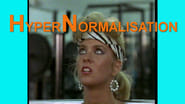Incannerax
What a waste of my time!!!
GamerTab
That was an excellent one.
ChicDragon
It's a mild crowd pleaser for people who are exhausted by blockbusters.
Frances Chung
Through painfully honest and emotional moments, the movie becomes irresistibly relatable
alexjamesholmes
Thought provoking illustration of a moment in time and how the events lead up to it, both as poignant as they are eclectic, contribute to the current social and economic climate of today.
Mehdi Zouaoui
Adam again used his deconstructivist style in order to reach the un-result leaving the viewer mesmerized and perplexed by what s/he should hold as truth in this world. The soundtrack of the documentary is similar to his previous documentary "Bitter Lake" with the acid music and also the colors in the movie are really sharp with raw footage that are unedited maybe to reflect the real world he's trying to unravel to the laymen. Again, he blames the finance men for the troubles that are happening around the world and also the politicians who gave up their powers to them by letting them have more than it is supposed to be. However, he has some inaccuracies in terms of some cases especially to what is happening in the Arab world. In other words, he may have even fallen in the perception management that he described in his documentary. In general, his documentary is mind opening to question the reality that is surrounding us.
krishna_limsakdakul
If you press a mute button from start to end of this film you could easily come up with more than a hundred and two tales or narratives. Bits and pieces of everything from news clips, ads, horror films, etc are taken out of their contexts and squeezed into a conspiracy theme, stretched out to a very dull, incoherent and lengthy yarn without any clear cut definitions or objectives except to scare viewers out of their wits. There are plenty of wits and imagination in this film. However, the real world is not causal and two dimensional. Curtis appears to ignore the fact that politics is a game of interests where the rules are ever changing. The game-changers are not always politicians or financial behemoths. Events can take on their own momentum without any ultimate goals. Consequences could be catastrophic and beyond anybody's controls. This film is definitely not a documentary that anyone can rely on to verify any information. If anything, it only sheds light on the increasingly deluded mind of Curtis whose obsession with hidden sinister global manipulators borders on a sense of paranoid. This feeling of insecurity is exactly what he wants to evoke among viewers. He's been trying to do just that since his first film "The Century of Self" over a decade ago. To be fair, I don't think Curtis himself has any cruel intention that he wants to impose on global population. Ambitious as he is, it's obvious from all his efforts that Curtis himself can't even separate facts from fantasy. You can find thousands of similar "documentaries" to this "Hyper-Normalisation" on Youtube.
muzzieoz
*SPOILER ALERT* First off, I would start by saying I am generally a huge fan of Mr Curtis' work; The Century of the Self series was brilliant and The Mayfair Set almost as good. However, HyperNormalisation is quite different.Mr Curtis covers a lot of different topics in this film. He starts with New York's near bankruptcy in the 1970's and the bankers effectively dictating to the politicians what cuts to make to public services, before briefly mentioning the hippies of the 1960's and their giving up on trying to change the world in the 1970's, before jumping off to talk about Syria in the 1970's. This is common throughout the film. Mr Curtis talks about one particular topic, make a few points then jumps off to talk about another, seemingly completely unrelated topic.When you watch HyperNormalisation you find yourself asking, "Are you making an argument or a just suggestion?" and then find you do not have an answer to that question.He covers a lot of different topics. Timothy Leary and LSD in the 1960's, the dawn of so-called "cyberspace" in the 1990's (the internet to you or I), the history of suicide bombings in the Middle East, Lebanon, the Iran-Iraq War, Libya, Colonel Gaddafi, Hamas, (the non-existent) WMD's, the overthrow of Saddam Hussein and Gaddafi, the Arab Spring, Facebook, news-generating algorithms, BlackRock, Soviet science fiction writers, the rise of Trump, it's all there, being jumped to, back and forth.The ending is particularly poor and the point he makes is almost so subtle that you only understand it after mulling it over. He makes his final point by reference to a scene in the film Carrie, which no one will understand unless they have seen the film, and with reference to a tearful women, who oozes condescension, complaining about Brexit. Even then, the point he is making is very vague.In the end, it's all just a bit of a mess. What's sad is that Mr Curtis is trying to explain the world and it's future yet watching HyperNormalisation you are left with the impression that he no longer understands it himself.



